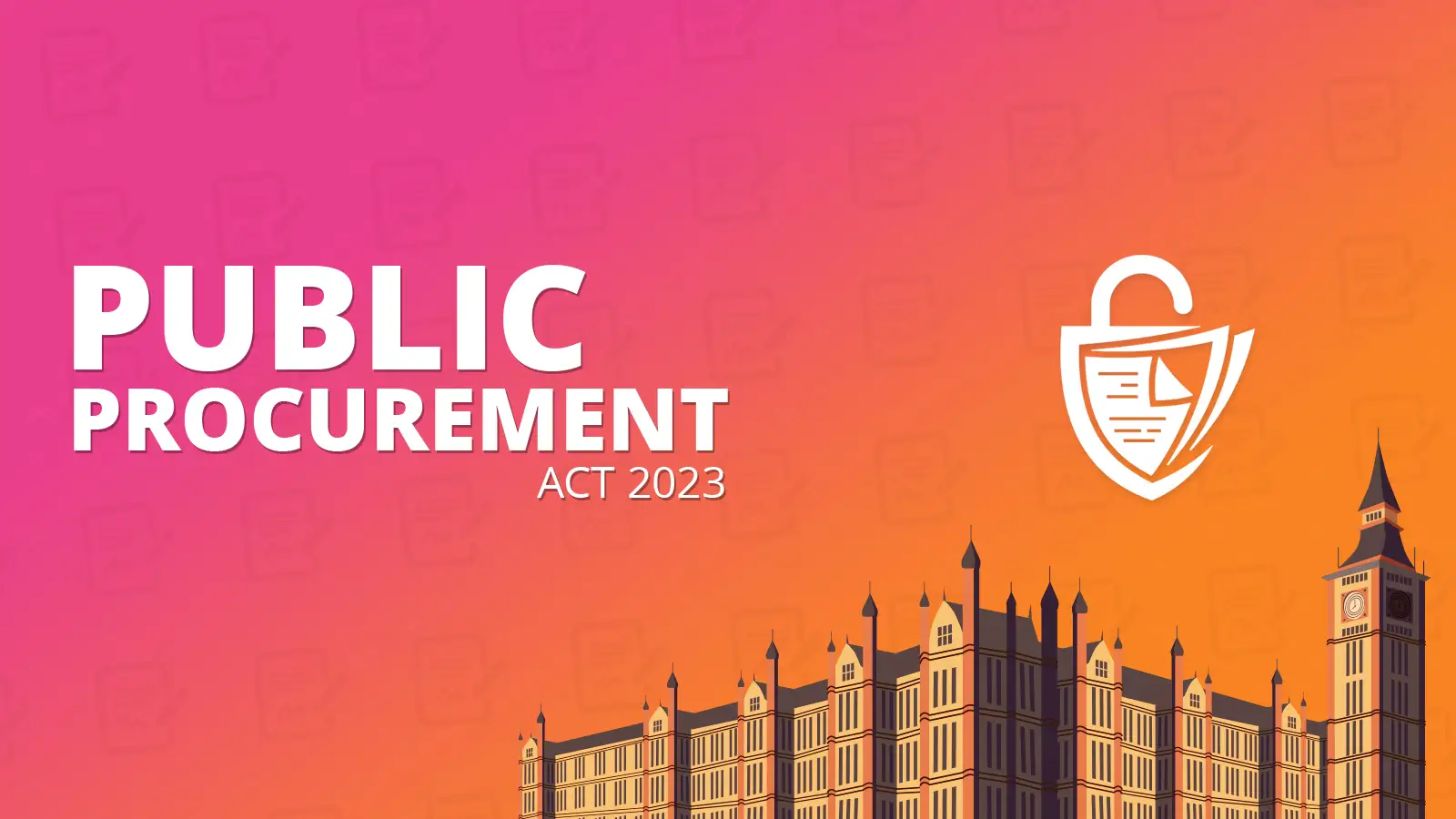Blog
CATEGORY: Getting closer to 'Transforming Public Procurement'
Getting closer to 'Transforming Public Procurement'

One in every three pounds of public money, some £300 Billion a year, is spent on public procurement..
On 12 May 2022 the Procurement Bill 2022 (the “Bill”) went to the House of Lords to commence its passage through the legislative process. It is anticipated that the eventual Public Procurement Act will be enacted in or around March 2023.
With one hundred and twenty pages, one hundred and sixteen operative provisions and eleven Schedules, the scope of the Bill is far reaching.
The Cabinet Office’s Procurement Bill Factsheet highlights the fact that it is the government’s aim to use the procurement reforms to assist with its levelling up agenda and to ensure that more public contracts end up with SMEs and local and regional suppliers where this is both possible and appropriate.
The Bill intends to create a simpler and more flexible system of procurement, based on principles of transparency, non-discrimination, value for money, public benefit, transparency and integrity. It is worth noting that the Bill is not a self-contained document. There are a number of important areas which will be subject to secondary legislation in due course, including provisions concerning transparency.
Key takeaways:
The Bill aims to establish a single legal framework for the award of public contracts, utilities contracts, concession contracts, and defence and security contracts by contracting authorities.
Many of the features of the new regime will be substantially the same as the current regime, but a number of significant changes are proposed.
Contracting authorities will be subject to broader transparency obligations under the new regime, which should mean that it will be easier to find out information about planned and completed procurements.
Contracting authorities will also have enhanced powers to exclude suppliers from procurements with key changes including: the introduction of a central list of debarred suppliers and broader rights to exclude suppliers for prior poor performance (including failure to meet KPIs).
The Bill still needs to pass through the Houses of Parliament and the Government has indicated that there will be a period of at least six months between the Bill becoming law and the new regime entering into force, which will be at some point in 2023 at the earliest.
Direct awards
The Bill largely retains the existing grounds permitting contracting authorities to award contracts without first running a competitive procurement procedure. However, there are some important changes.
First, the procuring authority must determine whether the supplier is an excluded supplier before making a direct award. A direct award may only be made to an excluded supplier where there is an overriding public interest to do so, or where the justification for direct award is extreme and unavoidable urgency.
Second, a direct award can now be made where necessary to protect life or public safety during an emergency situation, even where the circumstances leading to that situation were foreseeable. This new ground has been created in recognition of the fact that the existing extreme urgency ground did not provide sufficient latitude to contracting authorities to make direct awards during the COVID-19 pandemic.
Third, contracting authorities must observe a standstill period after making a direct award, unless the direct award is made on the grounds of extreme and unavoidable urgency or to protect life. The standstill period is triggered through the publication of a contract award notice.
Will the Bill result in a positive change for public procurement?
We view that it will as the Bill largely remains faithful to most of the principles set out in the original Green Paper – “Transforming Public Procurement” which was published on 15 December 2000.
Much of the wording used in the Bill will be quite familiar to procurement practitioners. However, some areas in the Bill use much more straightforward language than, for example, the Public Procurement Regulations 2015. Many non-lawyers may welcome this.
The Bill is intended to (and will) change the landscape of public procurement in England, Wales and Northern Ireland. Scotland is likely to continue under its own separate regime which we view will be closely aligned to the position in England, Wales and Northern Ireland. However, public procurement under the eventual Procurement Act will still be subject to international agreements concerning public procurement.
Procurement professionals should continue to watch the progress of the Bill as its moves through the legislative process. However, it is also important to remember that until the Bill becomes the Procurement Act, the current regulations and case law will continue to apply to all relevant procurement processes.
Solutions
Email marketing healthcheck
We are confident that we can help you, which is why we offer a free healthcheck to identify potential issues with your current programme and free advice on things that could be done to improve it.